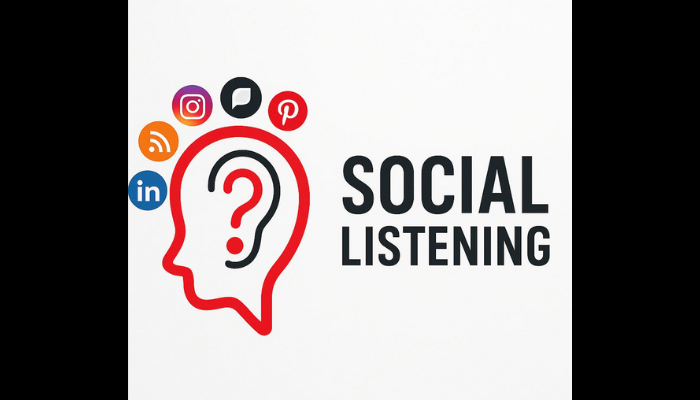FG intervenes to settle PENGASSAN versus Dangote Refinery dispute.
The dispute between PENGASSAN and the Dangote Refinery has been settled. The nationwide strike, which started on 30 September 2025, has been called off following successful government-led negotiations that concluded on 1 October 2025.
The dismissal of 800 workers of the Dangote Refinery (DT) was the trigger. PENGASSAN claimed Dangote Refinery sacked the workers for joining the union.
The Resolution
Dismissed workers will be given jobs in other companies within the Dangote Group with no loss of pay.
Reorganisation in DT
Dangote Refinery claimed the dismissals were part of a necessary “staff reorganisation” and to prevent “acts of sabotage.
No victimisation. No worker will be punished for their involvement in the dispute.
Union and Labour rights
The union argued the dismissals were an anti-union action and violated labour rights.
In the communique, the Federal Government affirmed that the right of workers to unionise is protected by Nigerian law and must be respected.
PENGASSAN’s action
PENGASSAN initiated a nationwide strike, disrupting gas supplies and operations at central energy sector offices. The Nigerian Labour Congress threatened to join them.
Following the FG intervention, PENGASSAN agreed to start the process of calling off the strike immediately. They subsequently announced the suspension on 1 October.
Significance of the Dispute and Resolution
The confrontation was extremely significant due to the vital role of the Dangote Refinery in Nigeria’s economy.
• National Economic Threat: The strike caused immediate disruptions, leading to a drop of over 1,000 megawatts in Nigeria’s electricity output and threatening widespread fuel shortages. A prolonged shutdown could have a significant impact on national energy security and inflation.
• High-Level Government Intervention: The resolution demanded extensive mediation involving several federal ministers, the National Security Adviser, and leaders of regulatory agencies. This degree of involvement underscores the refinery’s significance to Nigeria’s economy and the government’s commitment to maintaining industrial stability.
• Affirmation of Labour Rights: The agreement supports workers’ legal right in Nigeria’s private sector to unionise without fear of retribution. The government’s firm stance on this principle sets a precedent for future labour relations in the country.
Social media commentary and reactions on PENGASSAN versus Dangote
During the PENGASSAN and Dangote Refinery dispute, social media commentary was divided. While some users supported the union’s fight for workers’ rights, others criticised the strike for causing widespread hardship for ordinary Nigerians.
• Support for PENGASSAN
Viewed the dispute as a fundamental workers’ rights matter. Supporters referenced the constitutional right to freedom of association and contended that the refinery’s dismissal of union members was unlawful.
• Support for Dangote Refinery
Focused on the refinery’s economic importance. This side saw the union’s actions as “economic sabotage” that undermined a critical national asset and threatened Nigeria’s goal of energy self-sufficiency.
• Frustration with Impact
Directed at both parties. Many comments expressed anger over the immediate return of fuel queues and black market price gouging, viewing the standoff as an “own goal” that harmed the public.
The social media debate also involved references to history and law, adding layers to the public discourse.
• Historical References: Some users drew parallels to past government actions, explicitly mentioning the proscription of PENGASSAN by the Abacha regime on August 18, 1994.
• Legal Debate: Comments referenced the Nigerian Trade Disputes (Essential Services) Act of 1976. This law authorises the president to proscribe unions in essential services that engage in disruptive activities, prompting online discussion about the legality and suitability of the union’s strike tactics.
Questions & Answers on the New Nigeria Tax Law (Specific Focus on Individuals and Small Businesses)
1. When will the new Nigeria Tax Act take effect?
The new Nigeria Tax Act takes effect from 1 January 2026.
2. Which specific individuals does the Nigerian Tax Law apply to?
It applies to all individuals who earn income in Nigeria (workers, content creators, remote workers, influencers, traders, etc.) and to Nigerians earning income abroad if they are tax residents in Nigeria.
3. Will transfers and deposits into my bank account be subject to tax?
No. Moving money around (via POS, transfers, deposits, or withdrawals) is not a taxable event. What is taxed is income earned.
4: Will the money I keep in my bank account be taxed in 2026?
No. Having money in your account is not taxable in itself. Only the income you earn (like salary, business profits, or interest) is what can be taxed.
5. I’m a student with no job. Will I pay tax in 2026?
No. If you have no taxable income, you won’t pay tax.
6. Will tax authorities now monitor bank accounts of businesses more closely?
Yes, it will be easier for authorities to track compliance. But again, your bank balances will not be taxed; profits and income are.
7. Will I pay tax on the loan I borrow from any lender?
No. Loans are not taxable, given that they are not income. However, the interest income earned by a lender will be taxed in their own hands.
8. I run a one-person business. Do I pay personal income tax or company income tax?
If registered as an enterprise (business name), you are subject to Personal Income Tax. If registered as a limited liability company, then you pay Company Income Tax.
Q9. If I sell shares and make a profit, will I be required to pay tax in 2026?
No, as long as the shares you sold are not more than ₦150 million in value, and the gain is not above ₦10 million. However, if it exceeds this threshold, the gain becomes taxable.
Q10. I am a pensioner. Will my pension income be taxed in 2026?
No. Approved pension and retirement benefits are exempt from tax.
Q11. Are military salaries taxable?
No. The salaries of military officers are now tax-exempt.
Q12. Do creatives (authors, musicians, athletes) still enjoy tax exemptions on foreign income?
No. They must now pay Nigerian tax on their income earned both within and outside Nigeria.
Q13. Are crypto gains taxable?
Yes. Profits from cryptocurrencies, NFTs, and other digital assets are now subject to taxation.
Q14. Who is exempt from personal income tax?
A14. Individuals earning the national minimum wage or less, and those earning below ₦800,000 annually, are exempt.
*Q15*: What are the new progressive tax bands?
*A15
👉First ₦800,000 @ 0%
👉Next ₦2.2m @ 15%
👉Next ₦9m @ 18%
👉Next ₦13m @ 21%
👉Next ₦25m @ 23%
👉Above ₦50m @ 25%
Q16. If I receive a substantial severance package when leaving my job, will I be required to pay taxes on it?
16. You won’t pay tax if it is ₦50 million or less, but if it is more than that, the extra amount will be taxed using the progressive tax band in No. 15 above.
*Q17. If I earn dividends or rent from abroad, will Nigeria tax it?
Dividends, interests, rent, and royalties earned from outside Nigeria are exempt from tax, provided they are brought into Nigeria through approved channels (banks).
Q18. If a soldier or anyone in the armed forces gets injured in service and starts receiving a disability pension, will it be taxed in Nigeria?
*A18* No. The disability pensions earned by the soldier or anyone in the armed forces will be completely tax-exempt.
Q19. My uncle wants to start an agricultural company next year. Will his company be subject to taxation in Nigeria?
A19. No. Agricultural companies, such as those in crop production, livestock, forestry, dairy, and cocoa processing, will enjoy a 5-year tax holiday from the date they begin operation
*Q20. Is income from Federal or State Government bonds taxable?
*A20*: No, all government bonds are exempt from tax.

Response to the vision of the Lagos underground tunnel.

Foluke Martins
snodertpoS3987r91l5aupt19t2e2l7S 6mie 0t97lt1bhe3:9ff 16i3fh ·
The Federal Government has announced plans to construct Africa’s first underwater tunnel in Lagos, a 2.9-kilometre project that will run from Victoria Island under the Lagos Lagoon, pass through Snake Island and link up with the Sokoto-Badagry Expressway, opening new transport and economic opportunities around Badagry….
Let’s laff small this evening.
Possible impact of the US government shutdown on Nigeria
The ongoing US government shutdown has a specific, direct effect on Nigeria: the temporary suspension of routine updates from the US Embassy’s social media channels. The shutdown can also have broader, indirect impacts on Nigeria through global financial markets.
Here is a summary of likely effects on Nigeria.
• Direct Diplomatic Services
The U.S. Embassy in Nigeria has announced a halt to routine updates on its social media accounts, although it will continue to post urgent safety and security information.
• Global Financial Markets
The shutdown creates uncertainty among investors, potentially leading to market volatility. This can lead to a “flight to safety,” with investors buying assets such as gold and selling off riskier, emerging market investments.
Direct Impact: US Embassy Services in Nigeria
Due to the lapse in US government funding, the US Embassy in Nigeria has announced it will not be updating its social media accounts regularly until full operations resume. The embassy stated that updates will be reserved for “urgent safety and security information”.
It’s important to note that essential consular services, such as passport issuance and visa processing, are expected to continue “as the situation permits”. For the most accurate and up-to-date information on service status, please visit the official website of the US Embassy in Nigeria or the travel.state.gov website.
Indirect Impact: Global Economic Ripple Effects
While the direct operational impact on Nigeria is limited to the embassy’s social media, a prolonged US government shutdown can affect the global economic environment in ways that impact all countries, including Nigeria.
• Market volatility and risk aversion: Government shutdowns are perceived as a sign of political dysfunction in the world’s largest economy. This uncertainty can cause international investors to become nervous, prompting them to withdraw capital from emerging markets and seek safer assets, such as gold, which has already surged to record highs during this period.
• Pressure on the US dollar: The US dollar’s role as the world’s reserve currency could be challenged by ongoing political crises, which erode confidence in the US government’s reliability. A weaker US dollar can have complex effects on economies like Nigeria’s, influencing import expenses and the value of foreign reserves.
The longer the shutdown lasts, the greater the potential for these economic ripple effects to intensify. The 2018-2019 shutdown, which lasted 35 days, resulted in an estimated $3 billion in permanently lost economic output for the US.









